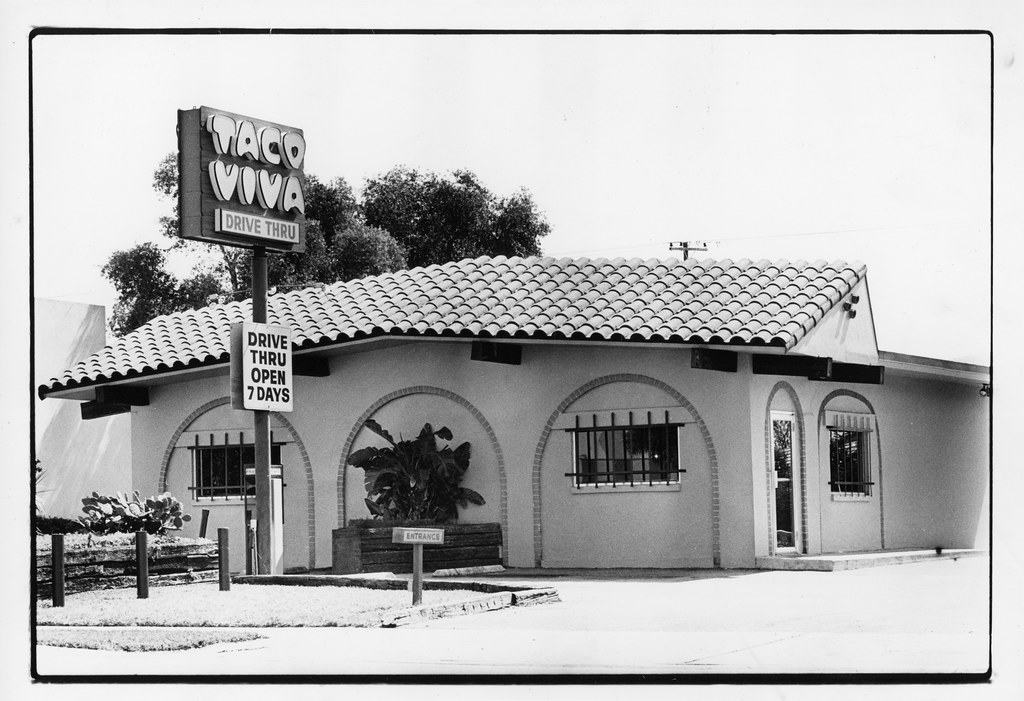
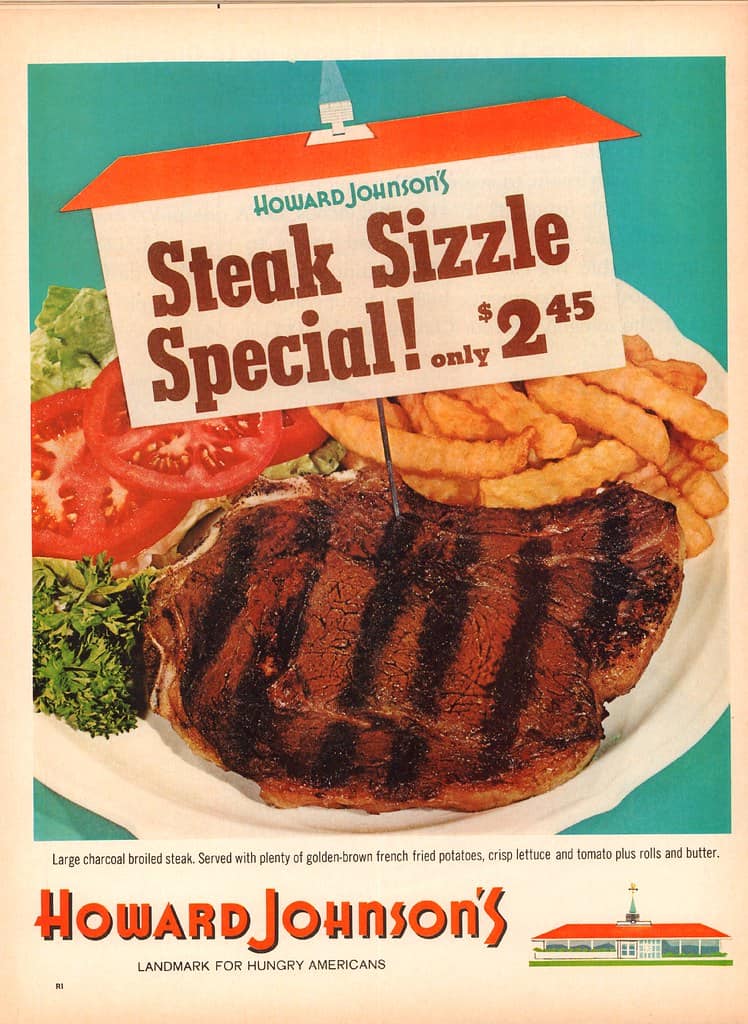
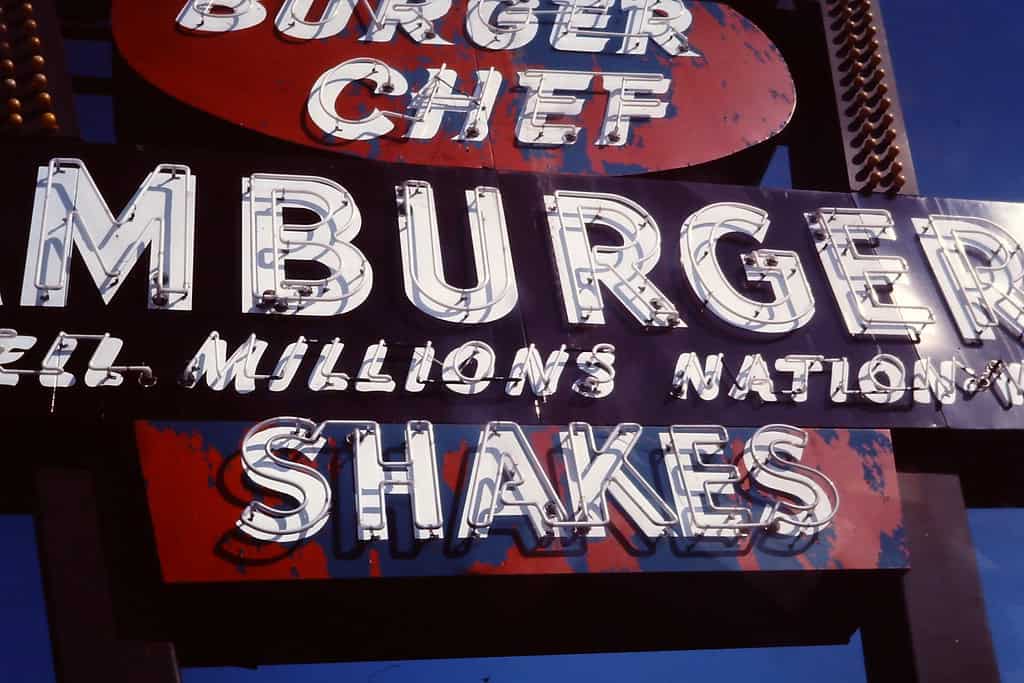
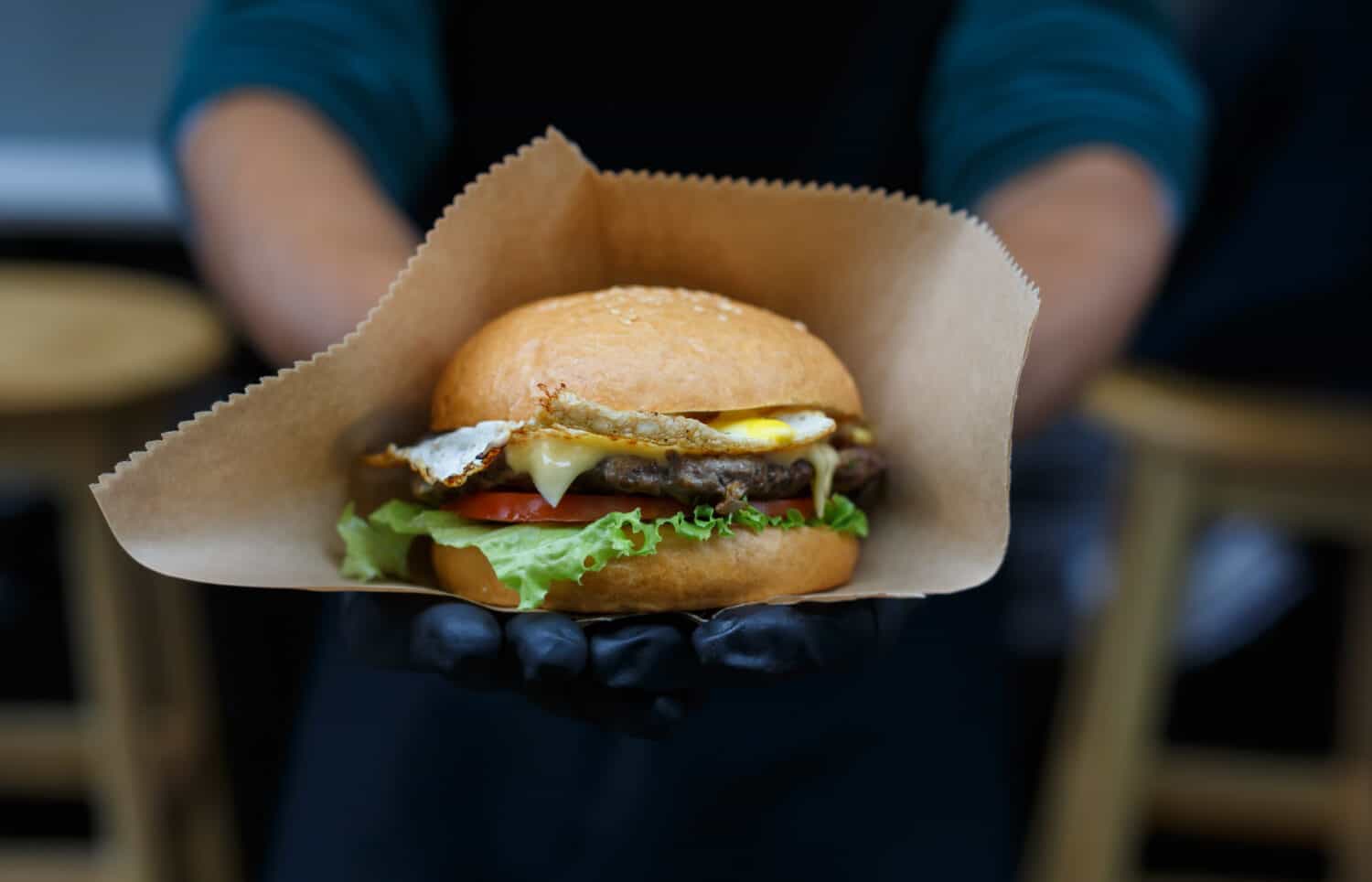

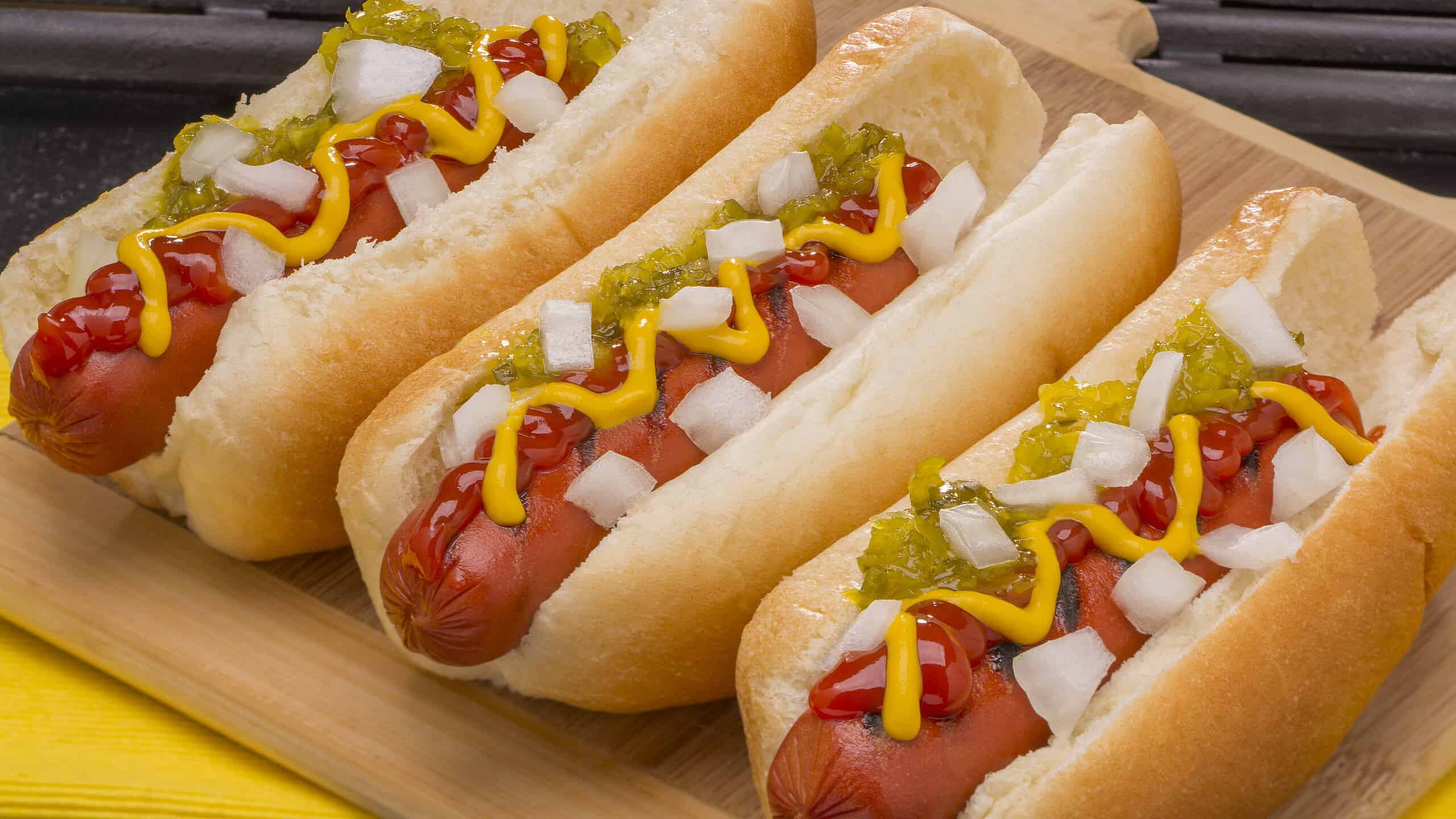
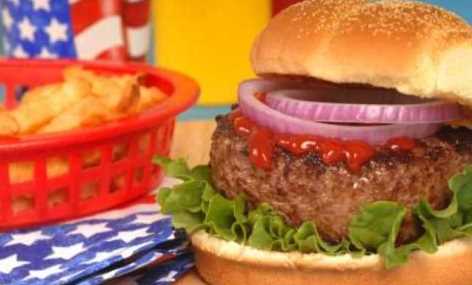
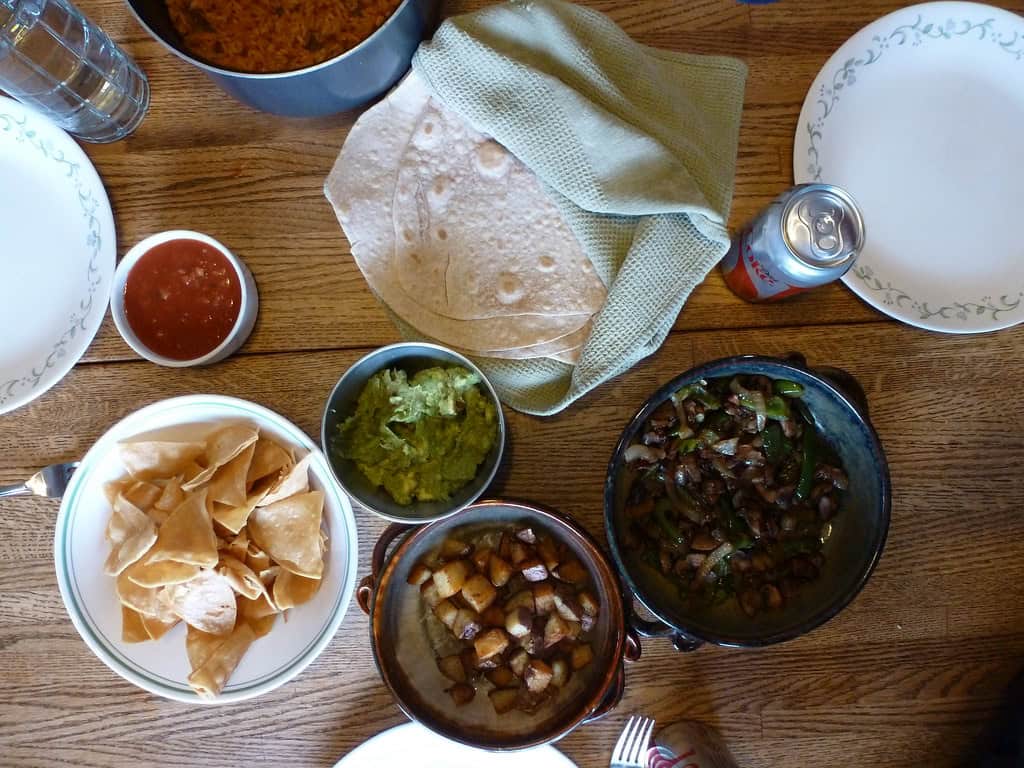
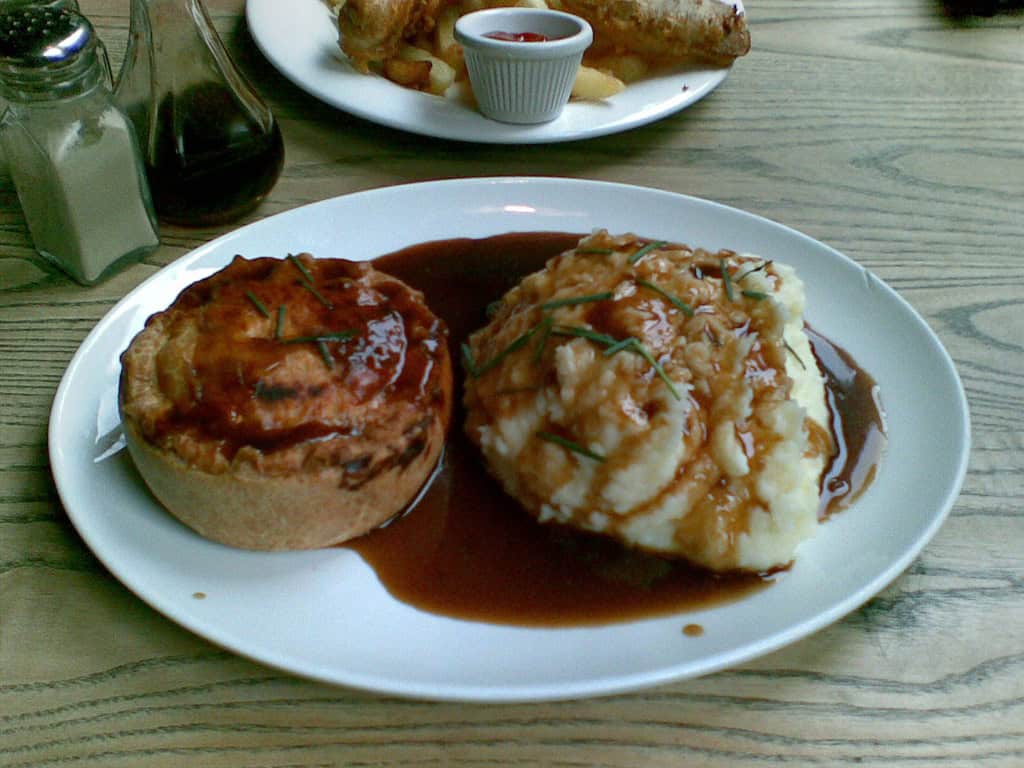
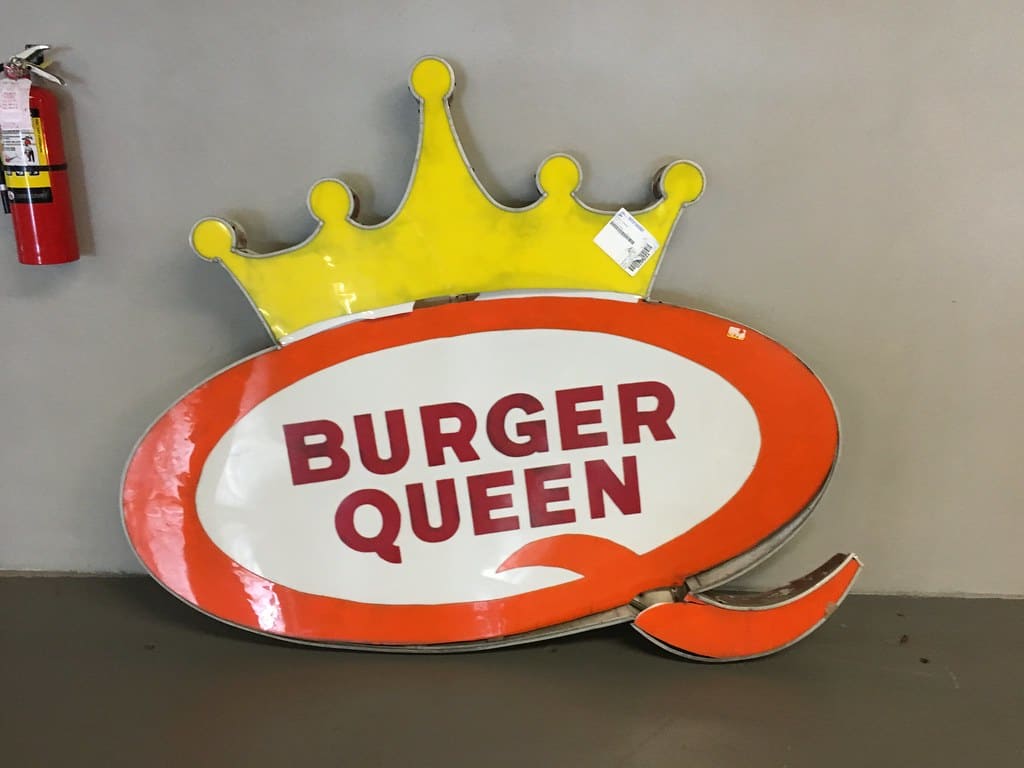
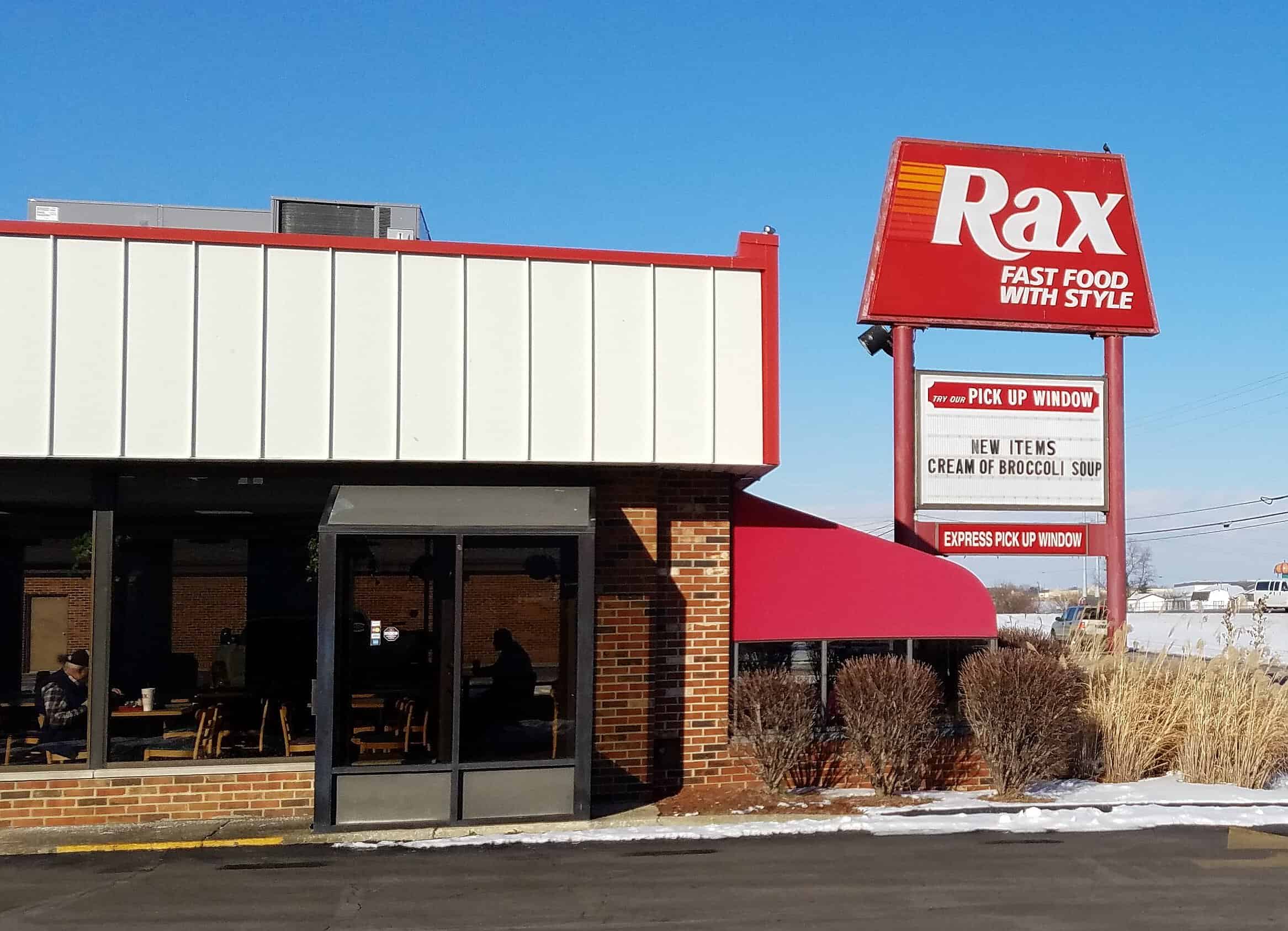

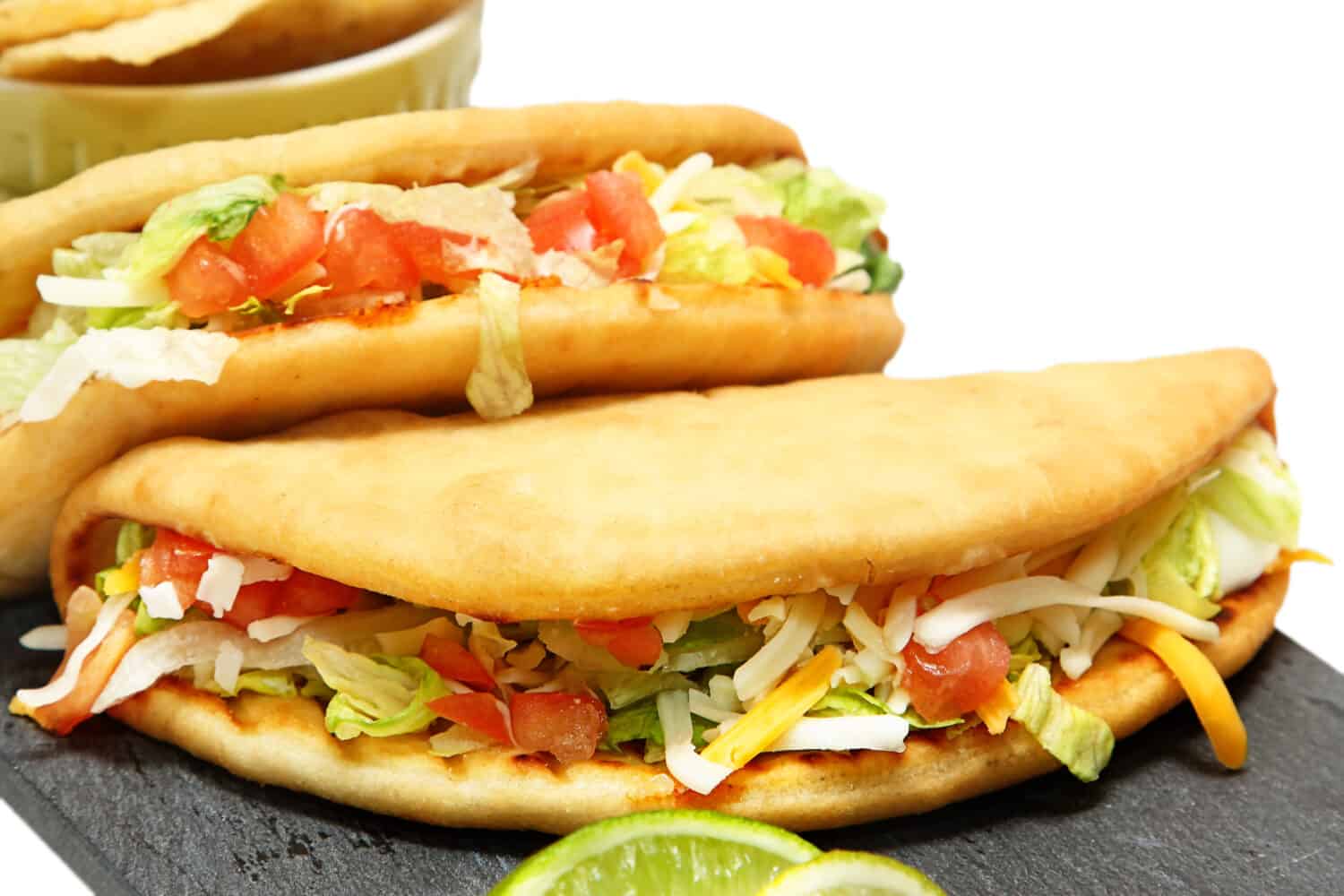

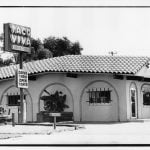
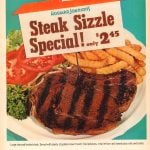
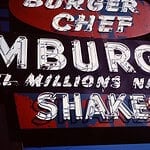


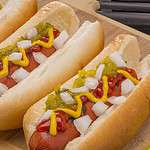



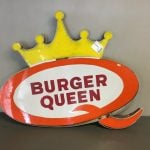
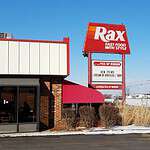

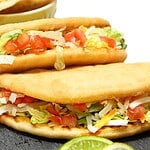

Iconic 1970s Restaurants That No Longer Exist
There was a lot to love about the 1970s as businesses tried new things and looked for new hooks to draw in customers, and that wasn't any more true than it was in the restaurant industry. There were new eateries popping up all over the place, so you didn't have to look far to find a restaurant that would offer your favorite foods. Still, while many restaurants during this decade were successful, they didn't always last long. To show you what we mean, we have this list of the iconic 1970s restaurants that no longer exist or are barely hanging on by a thread.
Howard Johnson's
For a long time, Howard Johnson's was one of the most recognizable restaurants in the country. This famous orange-roofed restaurant was everywhere, with over 1,000 locations across the country. There was a huge menu in each restaurant that had something for everyone, including fried clams and 28 ice cream flavors. Sadly, though this was one of the most famous 1970s restaurants, they only lasted until 1979. That's when Marriott bought the company, and they proceeded to shut down all company-owned Howard Johnson's locations. Soon after, the franchise restaurants closed, and the rest was history. Most recently, the restaurant was made famous for being on episodes of “Mad Men.”
Burger Chef
If the name Burger Chef reminds you of McDonalds then that makes sense. After all, during its heyday, Burger Chef was the second most popular restaurant, second only to Micky D's. Like its competitor, Burger Chef locations were all over the United States. Their most noteworthy burger was the Big Shef, which was a double cheeseburger with special sauce. The company was eventually purchased by the company that owns Hardees. The chain started to die off in the 1980s, and the last Burger Chef restaurant closed in 1996.
Sambo's
Sambo's is one of the 1970s restaurants that doesn't exist anymore, and that's mostly because of its theme. The resturant was named after the character Sambo, and the walls were covered with Sambo artwork and decorations. The problem was the book the restaurant was based off of, "The Story of Little Sambo" is widely considered to be racist. During the 1970s, that fact didn't seem to hurt the franchise much, as they had over 1,000 restaurants by 1979. Still, the name caught up with them and they ended up filing for bankruptcy in 1981 and closing all restaurants. There is one left standing, but they are changing their name, so Sambo's will officially be dead.
Taco Viva
Before Taco Bell became the most popular option for quick Mexican food, Taco Viva was the place to go. Throughout the 1970s and 1980s, this franchise grew from humble beginnings, and by the end of its run, there were 85 restaurants in 11 different states. Like Taco Bell, the sign and building was immediately recognizable, and it was a great place go to. However, like many other fast food taco joints, it soon met its end.
Lums
It's amazing how a major restaurant can grow from humble beginnings, and that's exactly what happened with Lums. The restaurant began as just a single hot dog stand in Florida. However, with hard work and dedication, the company was able to grow by leaps and bounds and had 400 franchises across the country. They're claim to fame was the frosted glass beers, fried seafood, and beer-steamed hot dogs. They were doing well during the 1970s but decided to sell the restaurants late into the decade. By 1983, all but one restaurant had closed, with the last one closing in 2017.
Gino's Hamburgers
The Marriott company was busy during the 1970s. In addition to purchasing Howard Johnson's, they also claimed Gino's Hamburgers, which was started by a couple of NFL players in Baltimore. This was a very meat-focused restaurant and their most famous burger was the Sirloiner, which was two buns and thick sirloin steak. Throughout the 1970s, the restaurant ruled the East Coast and they were on their way to the Midwest when they were purchased by Marriott, who turned all the locations into Roy Rogers restaurants instead. While the restaurant chain is not as popular as it once was, there are still two Gino's Burgers locations in Maryland as of 2024.
Naugles
Naugles was another of the go-to Mexican food chain restaurants that started in 1970 and then gained steam during that decade and beyond. The chain started in Riverside, California, but they quickly began to expand to other states, from Nevada to Florida. The beginning of the end occurred when Naugles merged with Del Taco. By 1995, all Naugles were converted to Del Taco, and that was it for the popular chain.
Steak and Ale
One of the most beloved of the 1970s restaurants was Steak and Ale. It was an old-school-looking restaurant that served steak at a great price. Plus, they had an unlimited salad bar and tasty dishes, including the herb-roasted prime rib. Steak and Ale combined forces with another restaurant in 1976 and grew to over 100 locations. As the restaurant headed into the 80s, the chain changed ownership many times, and that's never good for business. Although there are no Steak and Ale restaurants left, you can still purchase a franchise restaurant today if you're up to reviving the chain.
Burger Queen
New restaurant owners are always trying to get ideas from existing franchises, and that was the case for Burger Queen. It was supposed to be an unofficial combination of Diary Queen and Burger King, and it began in Florida in 1956. They served burgers, shakes, and fries. From the 50s till the end of the 70s, Burger Queen was doing pretty good. Then, in 1981, they changed their name to Druther's because they started also serving salad and fried chicken. They reached about 170 restaurants but then decided to sell to Dairy Queen. They converted the restaurants, and thus, Burger Queen is no more.
Rax Roast Beef
These days, Arby's is one of the biggest restaurants around when it comes to the finest roast beef sandwiches. However, before Arby's, there was Rax Roast Beef. The chain began in Ohio in 1967 and served the finest roast beef sandwiches in the state. They were so good that they expanded to 38 other states and had over 500 restaurants. However, while the chain has mostly died, it hasn't been completely wiped from the face of the earth — there are still five locations left.
Wags
Things were pretty crazy back in the 1970s when stores did things you just don't see anymore. One of them was when the famous Walgreens pharmacy decided to launch its own restaurant chain. Since Walgreens is open late, they wanted to have a 24-hour restaurant chain where families could eat at all times of the day and night. Then, when they were done, they could do some shopping in the drugstore. However, once again, Marriott struck and bought the restaurants. Eventually, Marriott decided to get out of the restaurant game, and when Wags couldn't find an owner, the eatery went bye-bye.
Pup 'N' Taco
If you were a youngster living in California in the 1970s, you likely ate at a Pup 'N' Taco at least once. This was a tasty restaurant where you could get a variety of dishes, including tacos, pastrami sandwiches, and tostadas, among other interesting items. They also had a huge variety of very tasty hot dogs. The chain began in 1956, and by the 1980s, there were over 100 locations. However, it was around then that a newer restaurant, Taco Bell, was dominating the scene, and they were just too big. Pup 'N' Taco could not compete. Taco Bell ended up purchasing all of the Pup 'N' Taco locations in 1984.
Red Barn
The Red Barn restaurants were not hard to spot during the 1960s and 1970s. Most of the establishments looked like an actual red barn in the middle of a city atmosphere. The chain had meager beginnings in the 1960s in Ohio but soon grew by leaps and bounds. During the 70s, there were over 400 locations in 22 states. Some of their signature dishes included their Barnbuster and Big Barney burgers, which were quite delicious. However, the chain met its demise like so many others do. During the late 1970s, the chain started to change owners and then it was sold a few times, and inevitably, the stores all closed by the 1980s.